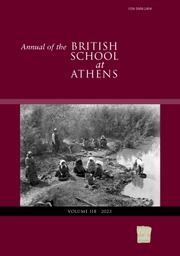No CrossRef data available.
Article contents
SEDUCTIONS OF THE BOUZOUKI AND THE BRASS BAND: TRANSGRESSIVE REFLECTIONS ON MIKIS THEODORAKIS AND GIUSEPPE VERDI
Published online by Cambridge University Press: 09 November 2020
Abstract
It may transgress convention to compare Mikis Theodorakis, better known for his songs than for his operatic work, with the Italian opera composer Giuseppe Verdi. Both, however, in very different national contexts, were engaged in political activity through their music – which often faced severe censorship – and their parliamentary activity. Both drew on popular traditions and utilised strong rhythms in their earlier works, experimenting later with freer forms. The differences between them meanwhile serve to highlight important differences between two countries often viewed within the shared frame of assumed Mediterranean commonalities and of ancient cultural origins, and help us to understand the role music plays in linking lived time to recorded history.
Δελεασμοί του Μπουζουκιού και της Λαϊκής Ορχήστρας Πνευστών: Ανατρεπτικοί Στοχασμοί σχετικά με τον Μίκη Θεοδωράκη και τον Τζιουσέπε Βέρντι
Ίσως θεωρηθεί παραβατική η επιχείρηση σύγκρισης μεταξύ του Μίκη Θεοδωράκη, περισσότερο γνωστού για τα τραγούδια του παρά για την παραγωγή οπερών, και του ιταλού μουσικοσυνθέτη οπερών Τζιουσέππε Βέρντι. Αμφότεροι, ωστόσο, αν και σε πολύ διαφορετικά εθνικά πλαίσια, ενεργούσαν πολιτικά, όσο μέσω της μουσικής τους – ή οποία εξάλλου αντιμετώπιζε συχνά την αυστηρή αντιπαράθεση της λογοκρισίας – τόσο και μέσω της κοινοβουλευτικής δραστηριότητας. Αμφότεροι εκμεταλλεύθηκαν τις λαϊκές παραδόσεις και χρησιμοποίησαν δυνατούς ρυθμούς στα νεανικά τους έργα, προχωρώντας αργότερα σε πειραματικές και πιο ελεύθερες μορφές. Οι μεταξύ τους διαφορές, επιπλέον, διαφωτίζουν σημαντικές διαφορές και μεταξύ των δυο πατρίδων, οι οποίες συχνά μελετούνται δια μέσου της κοινής οπτικής προϋποτιθεμένων μεσογειακών ομοιοτήτων και αρχαίων πολιτισμικών πηγών, και μας βοηθάνε να αξιολογήσουμε το ρόλο που η μουσική παίζει στη διεκπεραίωση της σύζευξης βιωμένου χρόνου και γραπτής ιστορίας.
- Type
- Articles
- Information
- Copyright
- Copyright © The Council, British School at Athens, 2020




